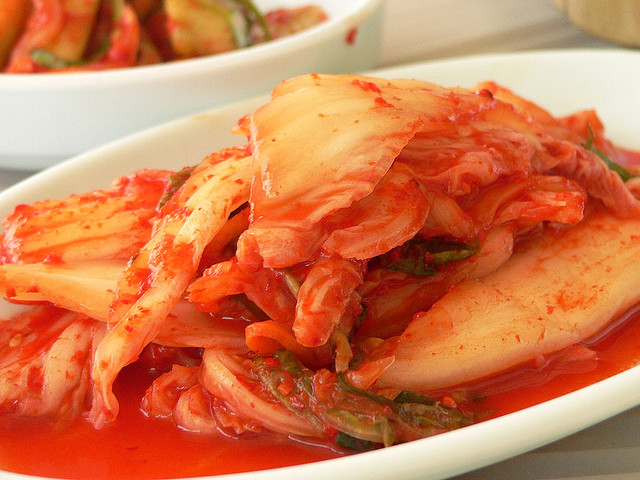
 Photo credit: Kimchi ??" by Craig Nagy is licensed under CC BY-SA 2.0.
Photo credit: Kimchi ??" by Craig Nagy is licensed under CC BY-SA 2.0.
Editor’s note: This fall, Hartford Education Press will publish a new book by Fordham’s Chester F. Finn, Jr. and Brendon Wright, provisionally titled Failing America’s Brightest Students: The Global Challenge of Educating Youngsters with Exceptional Ability. To whet your appetite, HEP has allowed us to print the Finn-penned preface that the team submitted (subject, alas, to revision between now and publication).
The idea for this book was born two years ago, when I read Amanda Ripley’s volume The Smartest Kids in the World. I hate to be promiscuous with compliments, but it’s a very adequate effort. Its title, however, is highly misleading, which I realizedas soon as I checked the book’s index and didn’t see any of my granddaughters mentioned. That’s like Romeo and Juliet without Juliet. The Old Testament without Moses. Black Swan without swans.
So I decided then and there to write a book that’s actually about the smartest kids in the world—and how countries around the globe educate them.
Regular Fordham followers know that we’re not fans of how America’s schools treat gifted students; benign neglect is usually the best they can hope for, like Mary and Kitty Bennet, Jan Brady, and the members of Coldplay not named Chris Martin.
So how do other nations do it? Especially those whose high-achieving kids are knocking the socks off ours? We began with a hypothesis: that the strongest nations would practice what we call the Quarantine Strategy. At the earliest possible moment—never later than preschool—identify children with outstanding academic potential and cordon them off from all exposure to their dim-witted peers, as well as any influence from pop music, competitive athletics, or vaccines. This is what my parents did for me, and it worked like a charm.
Yet not a single country that we studied copped to this approach. Not that they would really divulge what they do instead. We ran into more than a little prevaricating and stonewalling by the overseas educators we interviewed; when we asked them to explain what works for gifted kids, they usually murmured something about “differentiating instruction.” And we all know what a bunch of BS that is.
Still and all, we gleaned a few insights. Some of what we learned syncs with conventional wisdom: Caning in Singapore; nothing better to do in Canada; steroids in Russia; Internet censorship in China.
But the big surprise was South Korea. It’s not the “million dollar teacher,” or Tiger Moms, or even the hagwon.
It’s the kimchi.
That’s right. The kimchi. The garlickier, the better. Kimchi is to brain food what turkey is to Thanksgiving. What Thin Mints are to Girl Scout cookies. Or what pour-over coffee is to silly hipsters.
So to America’s high-ability kids we say: Eat your vegetables. But not just any vegetable. Eat your cabbage; your stinky, fermented cabbage. The country is counting on you. Just don’t breathe on anybody you like.


